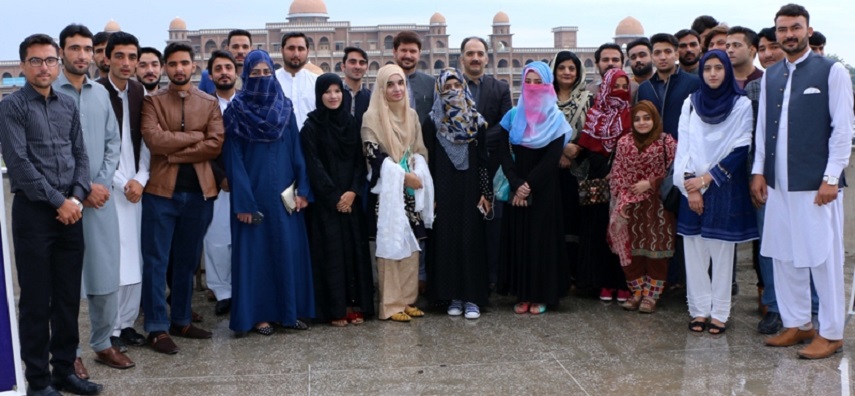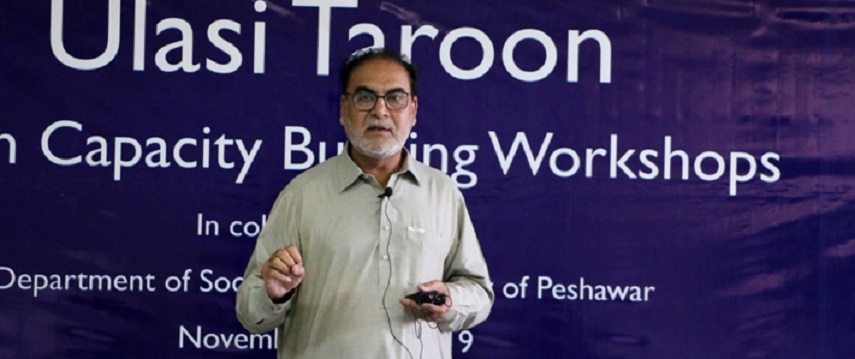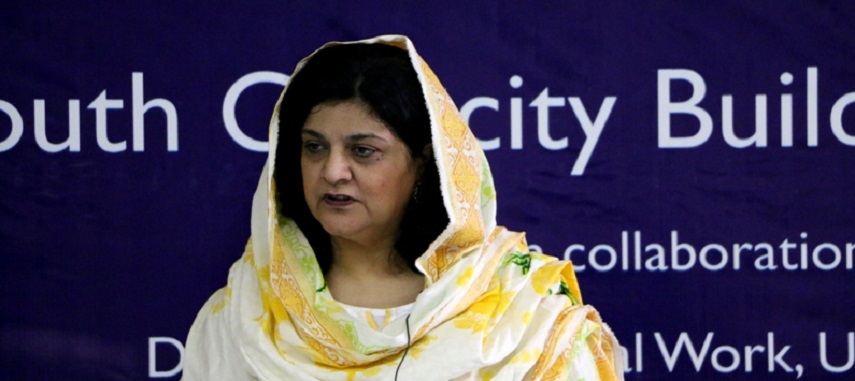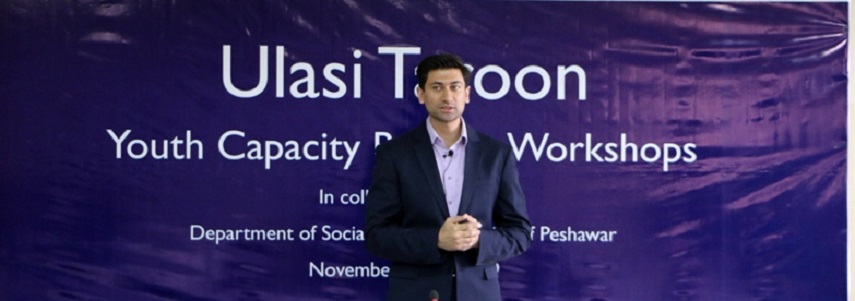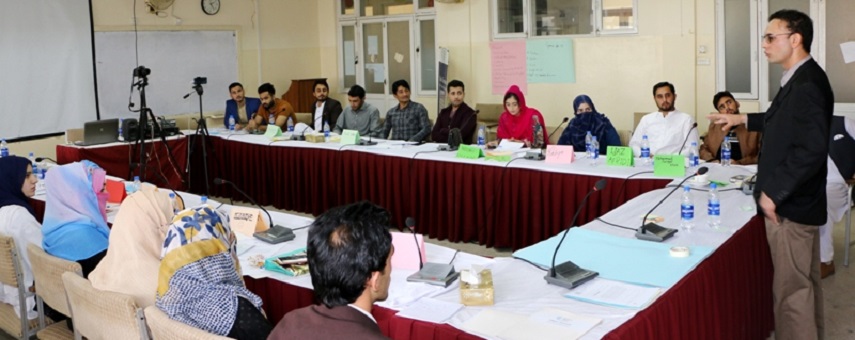Human rights and economic stability are the key components of national security and a stable democracy, and young people can play a key role in this regard. The mainstay of inclusive democracy should be citizens’ grievance redressal mechanism; addressing the issues that concern them the most. These views were expressed by Dr. Jamil Ahmad Chitrali from Institute of Peace and Conflict Studies, University of Peshawar, during the 23rd round of Ulasi Taroon Youth Capacity Building Workshops, organized by the Center for Research and Security Studies (CRSS) at and in collaboration with Department of Social Work, University of Peshawar.
Dr. Jamil Chitrali said there are two different views on national security and stability. The former suggests more weapons, armed forces and secured borders as a guarantee for the development and stability of a country, while the latter considers rule of law, fundamental human rights, equal citizenry and tolerance as the most essential prerequisite for democratic development and national stability. Good governance heavily depends upon and welcomes the citizens’ feedback critical to addressing issues of public concern, improving the service delivery of the institutions, and strengthening their accountability mechanism where it ultimately leads to inclusive democracy.
Dr. Aamir Raza, from the Department of Political Science, University of Peshawar, said that rule of law means that everyone is subject to and equally accountable before law, regardless of the socio-political and economic backgrounds. Every citizen can uphold and strengthen rule of law by adherence to and promoting respect for law. Such an active and responsible role of citizens can accelerate the journey towards a peaceful and prosperous society, and a more connected future. Powers come with responsibilities and rule of law calls for a responsible exercise of such powers.
Prof. Dr. Rashid Ahmed, Chairman of the Department of Social Work, University of Peshawar said that Pakistan is blessed with infinite resources in terms of human and material capital and only by successfully and positively channelizing these resources for the national development, can we strengthen social cohesion and harmony between the individuals and communities of different backgrounds.
Social cohesion is like a glue that connects different segments of a society in a unified form so as to enable them pursue the collective vision through shared goals and concerted efforts. He urged the youth participants to promote love and harmony and other positive messages among the communities for a peaceful and prosperous society.
Ms. Shagufta Khalique, educationist, said that the universal declaration of human rights completely resonates with our core constitutional values about fundamental rights available to the citizens. Responsible citizenry demands paying respect to fundamental human rights, both in reality and as an essentiality. Pakistan has rich religious, cultural and ethnic diversity and respecting this diversity is critical to peaceful coexistence of the people from these diverse backgrounds. As a matter of social inclusion, every citizen is an important member of a society. So, we must respect people regardless of differences in terms of religion, culture, tradition, color, cast, political views etc. Learning about other faiths can help build interfaith harmony in the society. Inter-religious and intra-religious dialogue at the different forums can ameliorate the misunderstandings about other faiths. Such dialogues can use faiths as connectors in the diverse societies and build better understanding of and address misperceptions about others’ religions.
She said that prerequisites for sustainable conflict resolution are the skills of communication, listening and empathy with refined analytical skill. Youth as future leaders must equip themselves with these skills to be effective peace builders.
Mr. Malik Mustafa, Manager Programs, CRSS said that critical thinking – albeit – is a problem-solving skill but in its true application, it is much more than that. It’s not merely a criticism but a prism and a perspective to look at any situation, where you have a clear vision – critical to inform your decision – of all the potential aspects of that issue. Critical thinking is about developing your understanding and opinion on the basis of all the available information and using research based evidence to support your arguments and ideas.
Youth must comply with the core constitutional values of respect, equality, tolerance and rule of law to foster social cohesion in the society.
Ulasi Taroon is a counter radicalization initiative of CRSS that aims to address the radicalization challenges, extremist ideologies and foster social cohesion through a discourse anchored in the core constitutional values which are fundamentally essential prerequisites for social peace and harmony. The endeavor aims to cultivate and sensitize the youth – in the universities across KP – in the core values in the Pakistani constitution and our social contract. It’s an attempt to highlight the criticality of abiding by these ideals – such as adherence to rule of law, primacy and sanctity of constitution, equal citizenry, responsible citizenship, respect for fundamental human rights, tolerance for diversity and different opinions, inclusive democracy and good governance – as a measure of fostering social cohesion and peaceful co-existence.

